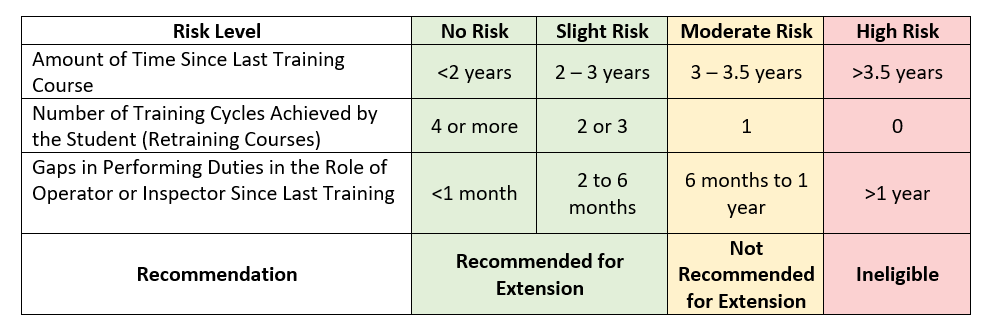In light of the logistical and safety constraints put upon NASA’s suppliers and training facilities due to COVID-19, NASA’s Office of Safety and Mission Assurance released its second memo, which endorses, with caveats, the extension of training credential validity periods for the majority of operators and inspectors employed by organizations who seek to comply with NASA Workmanship Standards for the assembly and Quality Assurance of NASA hardware. This extension is only applicable to individuals whose training credentials would have expired on or after Feb. 15, 2020.
The first memo extended the validity period of those training credentials through Dec. 31, 2020, while this new memo permits training credential validity to be extended through Oct. 1, 2021, given certain criteria are met.
This memo does not waive any internal training that is not covered by NASA-STD-8739.6, nor does it waive the necessity for new trainees to take full initial training. Furthermore, training credential extensions for individual technical standards must be evaluated independently of one another.
A risk-based approach to this training credential extension helps ensure continued manufacturing and Quality Assurance competence in this time period when training credentials are expiring and the availability of retraining is temporarily reduced. If safe retraining of an individual is not available, the individual can have his or her training credential extended based on three risk criteria:

High Risk: If an individual has a high risk for any of the three criteria, he or she may not have the training credential validity period extended and should seek retraining as soon as possible. Should a “high-risk” individual be required to continue his or her duties before lowering the risk category, a waiver or other local nonconformance data record should be approved by the affected project(s) before work is performed.
Moderate Risk: If an individual has a moderate risk for any of the three criteria, it is not recommended his or her training credential validity period be extended. However, those responsible for ensuring inspector or operator competency may make the determination whether a training credential extension presents an acceptable risk with concurrence from the affected project(s).
No Risk/Slight Risk: If an individual has no risk or slight risk for all of the three criteria, it is recommended that his or her training credential validity period be extended, without waiver, until any one of the categories change to moderate risk or higher, or October 1, 2021, whichever is sooner.
This analysis should be performed by whomever is responsible for assigning the individual his or her tasks or projects, and evidence of this analysis should be available for review by programs, projects, and other Safety and Mission Assurance (SMA) personnel. Level B instructors and SMA-sponsored Level B instructors may also have their training certification validity periods extended in the same fashion as an operator/inspector, under the same criteria in the previous table.
Electrostatic Discharge (ESD) Control Program training certifications are not covered by this memo. ESD Control Programs used at NASA centers and supplier sites are encouraged to either adapt the training programs using virtual techniques or on-the-job mentoring, for example, where appropriate, or consider a similar risk-based of certification validity period extension being used for Workmanship operators, inspectors and trainers.
A similar risk-based approach is recommended for vetting and approving personnel with IPC J-STD-001 and IPC/WHMA-A-620 training credentials that expired on or after Feb. 15, 2020, allowing the credentials to continue being used for the assembly and inspection of NASA hardware. IPC is the controlling body for certification validity of their own certificates and personnel who wish to maintain or renew their IPC credentials will need to comply with IPC training and retraining procedures and requirements.
Many NASA training centers are working with reduced capacity in their training classes, which threatens their ability to meet customer demand. To mitigate this issue, as well as downstream impacts to NASA missions, the NASA Workmanship program would like to request that trainees leverage this training credential extension as much as possible to allow those in higher risk categories first access to available training. The program also requests that training centers accommodate, to the best of their ability, trainees who are ineligible for further training credential extension.
Questions can be directed to Workmanship Program Manager Alvin Boutte.